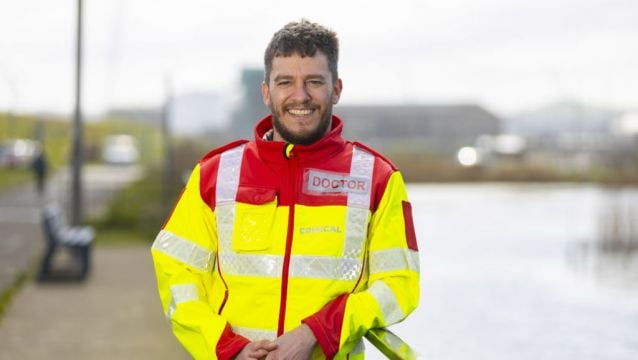Emergency medical response charity CRITICAL have said they attended 270 road traffic collisions since June 2023.
CRITICAL, which has volunteer groups across the country, said their responders have been tasked to a range of collisions in the last 14 months, ranging from collisions between cars, cars and pedestrians, and cars and e-scooters.
The charity has urged people to slow down and avoid distractions when on the roads this August bank holiday weekend.
CRITICAL is Ireland’s leading volunteer emergency response charity, with its mission being to save lives through a network of volunteer emergency medical responders.
They are tasked by the National Ambulance Service to respond to emergency 999 calls in their local area.
As they work or live close by, volunteers can get to a patient quickly to provide medical care while an ambulance is on the way.
South Wicklow GP, Dr Mark Ruddy, who previously worked as a flying doctor in Australia has been responding for CRITICAL since September 2022.
He says CRITICAL volunteers see speed and distraction as the main causes of road crashes and urges people to be cautious on the roads across the August bank holiday weekend.
“You might be the best and safest driver on the road, however you can’t account for others. Slowing down and not being distracted allows you to react to the mistakes of others,” Dr Ruddy said.
“While motorways are relatively safe, the majority of fatal accidents seem to be occurring on backroads or single lane national roads. Vulnerable road users such as motorcyclists and cyclists are making up a disproportionately high number of injuries.”
CRITICAL responders receive extensive training, but Dr Ruddy said that the impact of a road traffic collision can be tough on everyone involved, with the suddenness affecting him.
“People are doing normal things, living their life and things can change dramatically in an instance,” he said.
“We know that advanced level care as soon as possible can improve outcomes and reduce mortality and significant disability and that is what we strive for. Young people make up the highest proportion of road deaths which is very sad.”
David Tighe, chief executive of CRITICAL, said that the first 60 minutes after the onset of serious illness or trauma is known as “the golden hour” because that time is crucial to a patient’s chances of survival.
“A rapid emergency response can mean the difference between life and death, and is also vital in protecting the patient’s quality of life and recovery from a sudden illness or trauma,” Mr Tighe said.
CRITICAL Volunteers respond to 999/112 calls for patients who suffer from serious medical issues like cardiac arrest, stroke, choking, and seizures, or serious traumas like road, farming, school and workplace accidents, and falls.







